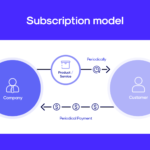Branching out geographically is a highly effective method to grow your business, yet matching your current success in another market is a difficult feat that requires meticulous planning and seamless execution. However, it can also be an amazing learning opportunity. Here are 3 major factors to focus on when considering expanding your business into new cities, states, or even countries, and what you can learn from your expansion:
Research Target Markets
First and foremost, a clear definition of your market is central to the process of business expansion. It is difficult to understand the needs of your consumers before first identifying who you want to sell your product to. Keep in mind things like the demographics, location, and common interests or needs of your target customers. You can benefit hugely by analyzing available market data to prioritize the areas your product or service will appeal the most. There is no use in wasting time gearing a product towards a city or country that won’t embrace it, so you should always consider whether your product or service will sell well in the new area of interest. Does the area have a need for your specific product or service? Are there gaps in the marketplace that your business can fill? Is there actually a market in that gap? How much competition will there be for your offerings in the designated location?
You can then prioritize potential markets by one of two ways:
1. Relative Demand
The higher the demand relative to the current supply / competition within a city, the more it makes sense to expand their first. This is the typical and most common approach that comes to mind when people consider where to expand to.
If you have been in business for a long time, you might have forgotten the amount of potential planning you did when you were starting out to assess your business as a go/no-go decision. The unit economics need to work first and foremost, and then the likely volume within a region needs to offset the fixed costs associated with that business unit (including necessary profits) for you to have a viable business.
2. Lessons to Learn
This is something that a lot of entrepreneurs will ignore, and it is one of my favorite to plan and discuss, but it is dependent on the path that you see for your business.
If you are looking to build a case for rapid expansion for investors (or for yourself) – it pays off to rather select different types of cities so that you can learn and solve the formula of expanding into all types of cities instead of just going for high demand similar type cities.
For example, you might chose one coastal city and one in-land city, or you might chose one 1st world country and one 2nd world country, and so on. This would then allow for more rapid expansion at a later stage since you have “solved” what it takes to expand to all different types of cities and can thus do tens of similar cities at the same time afterwards. You also have a larger proof of concept for investors to inject the needed capital for this rapid expansion instead of always having the same question – but just because it worked in one type of city, does that really mean it will work in a different type of city?
Either way, do not underestimate the differences. By putting time into discovering your target customer’s expectations, you put yourself in a better position to exceed them. Taking the time to understand the needs of customers in vastly different markets will teach you more about the needs of consumers as a whole, allowing you to reach more and more people.
Evaluate Expansion Capability
Simply having the drive for business expansion across new geographical lines does not mean your business is entirely prepared to take on this step. While your company might be flourishing under your current workload, it is important to consider how your competency will hold up with the added responsibility of expansion. You must ensure that your business model is scalable to your current goals. Ask yourself, can your business accommodate doubling your workforce to tackle the added work? Do you have the financial resources for a new shop or office? Do you have sales channels and infrastructure in place? The business model that has worked in the past may not be set up for expansion success, necessitating a meticulous plan to prepare the internal aspects of your company for expansion. Having practice with this will give you valuable lessons on how to perfect a scalable model to apply to a variety of situations in the future.
Rules and Regulations
With a new territory comes a new set of rules governing taxation and local regulations, which will become key pieces of information to consider before attempting to expand into the new area. Regulations will vary across state lines with regard to permits and licenses. You must ensure you have the proper registration to sell your product or service in your area of choice. And, of course, there is always the tax code to consider. What are your tax obligations to your new state as a foreign entity? What about to your home state? What about to the federal government? It is vital to make sure you are doing your due diligence before making the move to expand. By practicing this ethical code in several markets, you will form a habit of meeting important regulations in the future.
Expanding into a new market is an exciting opportunity that yields a great potential payoff. However, being too hasty with your decision to move into a new market can cause unintended and potentially harmful consequences to your business in the end. Remember to always do your research, follow the rules, and plan ahead for additional expenses. Expanding should always remain a central goal of any successful business, but expanding properly is what will bring you the most success in the end. By learning lessons from different cities that cater to different markets, you can expand exponentially.
Best,
Lawrence Brown
Co-Founder and Managing Consultant





